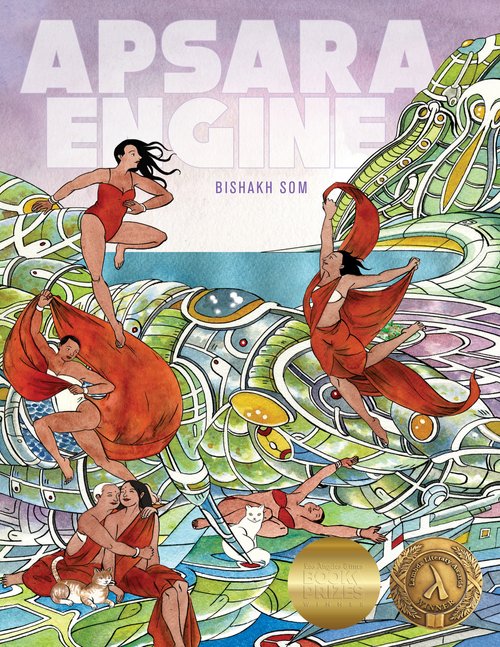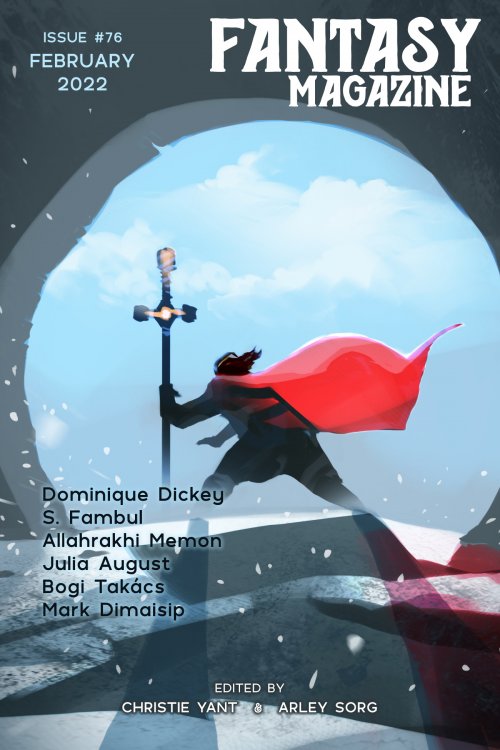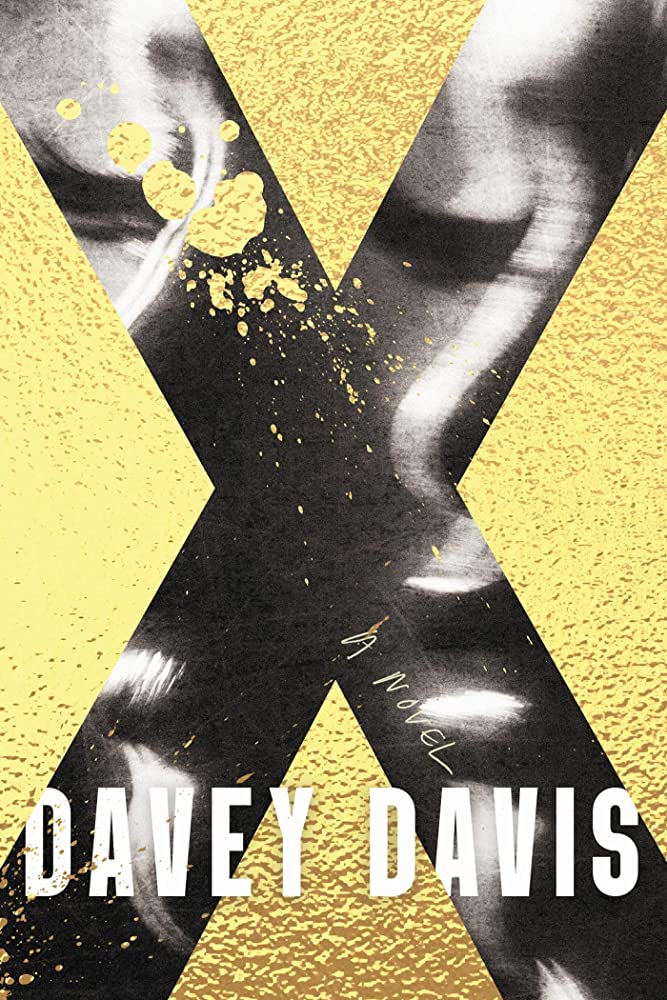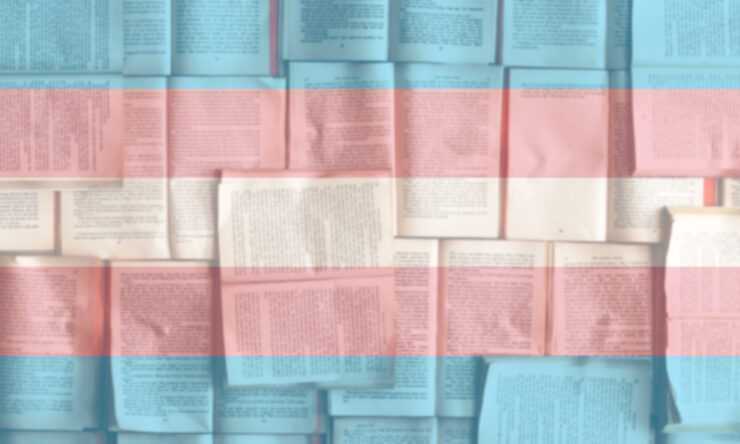We find ourselves now at the third and final installment of Queering SFF’s Big Gay Pride Month Recommendation List(s), following four weird and sexy books for summer and five queer Thai television series. While the June demonstrations and celebrations might be winding down, our fights for progress carry on here, there, and everywhere across the globe throughout the year. So, given the everything, I thought… what could possibly be better than featuring some exceptional recent work by trans creatives as our send-off?
If you’d told me twenty years back that—even just within the sf genres, let alone outside them—there would be enough books being published by trans folks that I couldn’t keep up with them all, I wouldn’t have believed you. But, delightfully, here we are! So this time around, in keeping with the “boosting things that maybe got less attention otherwise” goal of our lil’ essay series, the stories gathered below are all written by folks whose work I’ve never covered before.
A little background, before we get listing.
For the last two years, I’d say about 65% of my reading life has revolved around doctoral program research on how queer masculinity and transness take shape together. For example, how they appear within both popular media and gay sexual culture! And while I’m certainly having fun chasing down that material… at the same time, boy have I been pining after the wobbling tower of my “to be read” stack while buried instead under (otherwise perfectly neat!) trans scholarship and archival research. Selecting the stuff for this recommendation list gave me the perfect excuse to dive into the book-pile I’ve been languishing over.
So, thanks for the golden opportunity. I’ll pay it forward with these favorites—again, I figured multiple types of stories would give everyone something to chew on—in hopes of spreading some trans joy across the end of summer.
Apsara Engine by Bishakh Som

Apsara Engine collects eight graphic stories by artist and writer Bishakh Som—each and every one of which is imaginative, beautiful, strange, and speculative in its own way. In these gorgeously-illustrated comics, queer and trans South Asian characters move through many possible futures, pasts, and presents. Whether the young nonbinary graduate student in “Swandive,” whose intimate encounter with a senior trans academic leads to a fantastical, collaborative act of queer mapmaking/futuremaking; the (ex-)girlfriend from another timeline who disrupts Rajiv and his white girlfriend Sara’s visit to a house-party; or the kaleidoscopic human interconnectivity of the titular “Apsara Engine” itself… Som’s careful, tender, and yet also keen eye for relationships imbues these stories with nuanced intensity.
Even though Apsara Engine won both the Los Angeles Times Book Prize and the Lambda Literary Award for graphic novels after its release in 2020, prompting me to immediately purchase a copy, I hadn’t actually sat down with it until this summer. Sometimes a book waits on your shelf until just the right moment, and damn, was that ever the case here. The visual story-telling alone! I found myself luxuriating over individual pages, because the ways the prose and illustrations weave through one another is almost indescribable. The final section of “Swandive,” for example, where Amrit and Onima phase through their queerly-mapped possible future(s) and live(s) after sketching cartography with Onima’s donated blood… you simply must see it for yourself.
“Slow Communication” in Fantasy #76 by Dominique Dickey

Dickey’s powerful, concise piece explores issues of lineage and gender, communication and growth. Darla Revere, a young Black girl nearly finished with high school, has the responsibility of formulating a single question for the alien being that contacts the women of her family once per generation. However, Darla’s own attachments to being a woman—or, more to the point, not being a woman—add further gravity and complexity to the process of developing her question. In the author spotlight interview, Dickey writes that this piece is “the story I wanted to read—and ultimately, the story I wanted to live—when I first came out to my family.”
For a spot of perfect timing, while I was drafting this essay the finalists for the 2023 Theodore A. Sturgeon Memorial Award were announced—and behold, “Slow Communication” was one of the nominees! Though I read far less short fiction than I used to, multiple friends passed along this piece when it was published, and it’s stuck with me since. The particular hesitation around what kinds of changes to one’s body could even be made, the wrestling with where gender transition might shift you in relation to a long line of mothers and aunts and grandmothers… those fraught emotions are well-represented here. As Dickey writes, “Why admit to yourself that you want something, when you absolutely cannot have it? So Darla denied the changes that she wanted—changes she felt would have made her whole.”
That ending, also? Perfect.
X by Davey Davis

X isn’t for everyone. But if your tastes run toward raw, intense, heart-stuttering queer fiction—if you’re, say, a fan of Dennis Cooper like me—then this sadomasochistic noir will certainly whet your appetites. The novel is set in a near-future New York where our contemporary political rot has metastasized: transness might get you imprisoned for “identity fraud,” queers and perverts are shadowbanned to hell online while their bars are raided offline, and a new branch of ICE has begun sending “export” letters to undesirables: get yourself out of the country, or else. The protagonist, Lee, recently ended things with their absent girlfriend Petra—an absolute good-girl bottom, once the brat was knocked loose—and then had a system-rattling sexual encounter with another sadist top who wrecked their entire shit, known only as “X.” The problem being, when they regained consciousness afterwards X was gone… and rumor has it she intends to export within the month. Lee needs to find X before she goes, though they couldn’t quite say why, but locating her also means digging through a whole pile of erstwhile friends, fucks, and/or enemies.
And, sometimes worse, memories.
Though I’ve seen X referred to as a dystopian novel, the future Davis paints feels realer and closer to me—like something breathing on the back of my neck. As our leatherdyke protagonist says, “I figure my [export] letter’s not long in coming, but I still don’t know what I’ll do. […] My medical and criminal records are all right there. Maybe the law will change back again before it happens to me, if this city doesn’t get sucked into the ocean first.” By the end, the novel had provoked the nerve-shakes in me at least three times… and, ahem, some other powerful bodily responses besides. Davis leaves several questions purposefully unresolved, the possible outlines of their answers either pulsing afterimages of memory that Lee cuts short, or excises—but the hollow spaces left behind sure do provoke some feeling nonetheless. Ultimately, X is one of those rare books that managed to crumple and twist me into knots, then flatten me right back out again. So if you’re aiming to be hurt: this one will get the job done.
***
And that’s a wrap on our yearly Queering SFF Pride Month special! May these recommendation lists provide you with some queer joy—and passion, and power, and strength—as the year continues onward. Whether you end up reading a whole stack of trans comics; watching twenty-seven short films in a row on queer streaming service GagaOOLala (seriously, there are so many); or simply loaning a friend your personal copy of an awesome gay novel… carry on seeking pleasure in the arts!
Because sometimes, that’s what gets us through the worst days, together.
Lee Mandelo (he/they) is a writer, critic, and occasional editor whose fields of interest include speculative and queer fiction–especially where the two coincide. Summer Sons, their spooky gay debut novel, was published by Tordotcom, with other stories featuring in magazines like Uncanny and Nightmare. Aside from a brief stint overseas, Lee has spent their life ranging across Kentucky, currently living in Lexington and pursuing a PhD in Gender Studies at the University of Kentucky.










